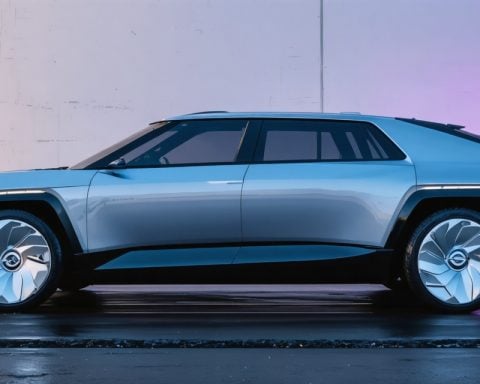- Turo has unexpectedly halted its plans to go public, impacting the peer-to-peer car-sharing industry.
- Following Turo’s decision, Getaround has ceased U.S. operations, focusing on European markets due to liquidity challenges.
- Turo’s adjusted EBITDA decreased significantly from $81.1 million in 2021 to $25.6 million in the first three quarters of 2024, indicating a slowdown.
- The booking rate growth has sharply declined from 75% in 2022 to 9% year-on-year by late 2024.
- Despite challenges, Turo is still attractive to investors thanks to its commitment to a sustainable business model and strong gross profits of $334 million.
- The car-sharing market faces economic challenges, emphasizing the need for strategic endurance over rapid expansion.
Turo, the famed San Francisco-based car-sharing pioneer, has unexpectedly reversed course, abandoning its much-anticipated plans to go public. This decision ripples through an industry already reevaluating its strategies. The peer-to-peer car-sharing market, with its promise of transforming urban transportation, faces fresh scrutiny.
Recent events add layers to this unfolding drama. Following Turo’s decision, another key player, Getaround, has ceased its U.S. operations, retreating to a safer European stronghold. Despite Geraound’s profitability and ambitious restructuring, liquidity woes forced their hand—a cautionary tale of the complexities of sustaining growth in innovative sectors.
Turo itself, while boasting a reputation for profitability, reveals signs of deceleration. The company saw its adjusted EBITDA plummet from $81.1 million in 2021 to $25.6 million in the first three quarters of 2024, signaling a stark slowdown. The booking rate once thrived, skyrocketing by 75% in 2022, but passion waned as growth sagged to a meager 9% year-on-year by late 2024.
Despite daunting challenges, Turo remains a tantalizing prospect for investors, stubbornly anchored by its commitment to a sustainable business model. Investors keen on profitability have noted its solid gross profit figures, albeit slightly shrinking to $334 million in recent months. Yet, market conditions are unforgiving, with economic turbulence casting long shadows over IPO aspirations and pushing startups to remain out of public view.
For Turo, the road remains open, but the scenery demands a cautious, strategic journey. In an unpredictable world, the emphasis shifts from rapid expansion to resilient endurance, laying asphalt for a long-term game in the evolving car-sharing saga.
Is the Future of Car-Sharing in Limbo? Turo’s Path Forward Unveiled!
How-To Steps & Life Hacks: Launching Your Car-Sharing Venture
Starting a car-sharing service like Turo requires strategic planning and a solid understanding of market dynamics:
1. Market Research: Analyze regional demand for car-sharing services. Assess competition and identify gaps in services offered by giants like Turo or Getaround.
2. Business Model Selection: Choose between peer-to-peer (P2P) or fleet-based models. P2P tends to have lower upfront costs but requires robust trust and safety measures.
3. Regulatory Compliance: Understand local laws regarding car rental services. This includes insurance requirements, safety regulations, and taxation.
4. Technology Integration: Develop a user-friendly platform for bookings and payments. Ensure a seamless interface on both web and mobile applications.
5. Marketing Strategy: Leverage digital marketing and social media to build brand awareness. Offer introductory discounts to attract initial users.
6. Customer Experience & Feedback: Prioritize customer service and routinely capitalize on feedback for continuous improvement.
Real-World Use Cases
Car-sharing platforms serve various needs:
– Urban Commuters: Provide flexible, affordable transportation solutions without the need for car ownership.
– Tourism: Offer tourists convenient access to transportation tailored for sightseeing and exploration.
– Business Travel: Enable cost-effective mobility solutions for corporate clients, reducing the need for permanent company cars.
Market Forecasts & Industry Trends
The global car-sharing market is projected to grow to $16.5 billion by 2028, with an increased focus on electric vehicles (EVs) and eco-friendly solutions (Source: Grand View Research). Urban areas are expected to be significant contributors due to high population density and increasing environmental awareness.
Reviews & Comparisons: Turo vs. Competitors
– Turo: Offers the largest selection of vehicles in the P2P car-sharing market, known for its diverse fleet ranging from economy to luxury cars.
– Getaround: More integrated with car technology, allowing instant access without the need for key exchanges, which provides a seamless experience but limits user vehicle options.
Controversies & Limitations
Both Turo and Getaround have faced challenges:
– Insurance Issues: Users have reported complications in claims during accidents, highlighting the need for clear, comprehensive insurance policies.
– Regulatory Hurdles: Some cities impose restrictions on car-sharing services due to competition with traditional taxi and rental services.
Features, Specs & Pricing
– Turo: Charges a percentage of the rental cost as a service fee, with optional insurance plans adding to the rental amount. The platform also includes convenient features like contactless check-in and in-app messaging for coordination.
Security & Sustainability
Security and sustainability are primary focuses:
– Turo: Implements robust verification processes for users and has introduced initiatives to incorporate more eco-friendly vehicles into its fleet.
Insights & Predictions
The car-sharing market must adapt to evolving consumer preferences, emphasizing sustainability. Expect growing integration with EVs and hybrid vehicles, aligning with global green initiatives.
Actionable Recommendations
1. Invest in Technology: Implement AI-driven analytics to optimize fleet management and respond to customer demands efficiently.
2. Collaboration with Automakers: Form partnerships with automotive companies to access a consistent supply of vehicles and advantageous lease deals.
3. Focus on Sustainability: Incorporate electric and hybrid vehicles to meet the increasing demand for sustainable options.
4. Customer Education: Provide resources to users about insurance coverage and claims processes to avoid potential disputes.
Conclusion
The car-sharing landscape is shifting, calling for strategic adaptability. By focusing on sustainability, embracing technology, and refining customer experience, players like Turo—and those aspiring to join the market—can secure their positions in this promising sector.
For more insights into the evolving car-sharing industry, visit the official websites of Turo and Getaround.












